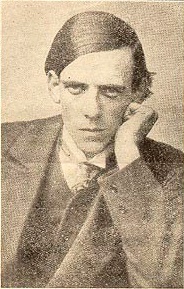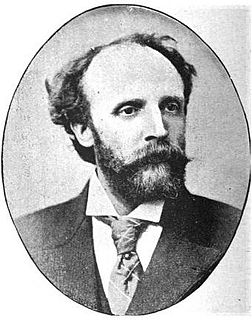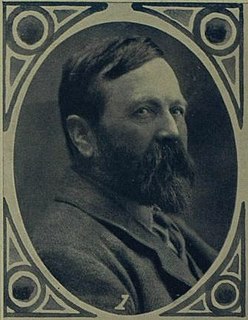George Shann (28 October 1876 – 2 January 1919) was a British politician.

The British people, or the Britons, are the citizens of the United Kingdom of Great Britain and Northern Ireland, the British Overseas Territories, and the Crown dependencies. British nationality law governs modern British citizenship and nationality, which can be acquired, for instance, by descent from British nationals. When used in a historical context, "British" or "Britons" can refer to the Celtic Britons, the indigenous inhabitants of Great Britain and Brittany, whose surviving members are the modern Welsh people, Cornish people, and Bretons. It may also refer to citizens of the former British Empire.
A politician is a person active in party politics, or a person holding or seeking office in government. Politicians propose, support and create laws or policies that govern the land and, by extension, its people. Broadly speaking, a "politician" can be anyone who seeks to achieve political power in any bureaucratic institution.
Born in Knaresborough, Shann grew up in Bradford. He began working half-time in a spinning mill at the age of ten, then five years later moved to a woolcombing mill. He studied in his limited spare time, and won a scholarship to the Bradford Technical College, where he excelled; in 1896, he attended the University of Aberdeen, again on a prize scholarship, and from 1898, he was at the University of Glasgow, graduating in economics. [1]

Knaresborough is a market and spa town and civil parish in the Borough of Harrogate, North Yorkshire, England, on the River Nidd 4 miles (6.4 km) east of Harrogate.

Bradford is a city in West Yorkshire, England, in the foothills of the Pennines, 8.6 miles (14 km) west of Leeds, and 16 miles (26 km) north-west of Wakefield. Bradford became a municipal borough in 1847, and received its charter as a city in 1897. Following local government reform in 1974, city status was bestowed upon the City of Bradford metropolitan borough.

The University of Aberdeen is a public research university in Aberdeen, Scotland. It is an ancient university founded in 1495 when William Elphinstone, Bishop of Aberdeen and Chancellor of Scotland, petitioned Pope Alexander VI on behalf of James IV, King of Scots to establish King's College, making it Scotland's third-oldest university and the fifth-oldest in the English-speaking world. Today, Aberdeen is consistently ranked among the top 200 universities in the world and is ranked within the top 30 universities in the United Kingdom. In the 2019 Times Higher Education University Impact Rankings, Aberdeen was ranked 31st in the world for impact on society. Aberdeen was also named the 2019 Scottish University of the Year by The Times and Sunday Times Good University Guide.
In Glasgow, Shann worked as warden of the student settlement, and this experience inspired him to join the Fabian Society. He moved to Birmingham in 1904, lecturing at the University of Birmingham, and teaching at the Woodbrooke Settlement. He was also elected as a Labour Party member of King's Norton Urban District Council. In his spare time, Shann campaigned against sweatshops, and became the first secretary of the National Anti-Sweating League. This led him to join the Workers' Union and the Independent Labour Party (ILP), and in 1911 he was elected to Birmingham City Council, acting as the Labour and ILP group secretary. [1]

The Fabian Society is a British socialist organisation whose purpose is to advance the principles of democratic socialism via gradualist and reformist effort in democracies, rather than by revolutionary overthrow.

The University of Birmingham is a public research university located in Edgbaston, Birmingham, United Kingdom. It received its royal charter in 1900 as a successor to Queen's College, Birmingham and Mason Science College, making it the first English civic or 'red brick' university to receive its own royal charter. It is a founding member of both the Russell Group of British research universities and the international network of research universities, Universitas 21.
The Labour Party is a centre-left political party in the United Kingdom which has been described as an alliance of social democrats, democratic socialists and trade unionists. The party's platform emphasises greater state intervention, social justice and strengthening workers' rights.
Shann supported Britain entry into World War I, putting himself at odds with the majority of the ILP, from which he resigned. In 1915, he left the council to join the mechanical transport section of the British Army; he was selected as an alderman, but was unable to play any part in council activities as he was on overseas service. [1]

World War I, also known as the First World War or the Great War, was a global war originating in Europe that lasted from 28 July 1914 to 11 November 1918. Contemporaneously described as "the war to end all wars", it led to the mobilisation of more than 70 million military personnel, including 60 million Europeans, making it one of the largest wars in history. It is also one of the deadliest conflicts in history, with an estimated nine million combatants and seven million civilian deaths as a direct result of the war, while resulting genocides and the 1918 influenza pandemic caused another 50 to 100 million deaths worldwide.

The British Army is the principal land warfare force of the United Kingdom, a part of British Armed Forces. As of 2018, the British Army comprises just over 81,500 trained regular (full-time) personnel and just over 27,000 trained reserve (part-time) personnel.
An alderman is a member of a municipal assembly or council in many jurisdictions founded upon English law. The term may be titular, denoting a high-ranking member of a borough or county council, a council member chosen by the elected members themselves rather than by popular vote, or a council member elected by voters.
Despite his estrangement from the ILP, Shann remained active in the Labour Party, and stood in the 1918 UK general election as its candidate for Birmingham Yardley. He took second place and was not elected. He became ill shortly after the result was announced, and died at the start of 1919. [1]

Birmingham, Yardley is a constituency of part of the city of Birmingham represented in the House of Commons of the UK Parliament since 2015 by Jess Phillips of the Labour Party.












